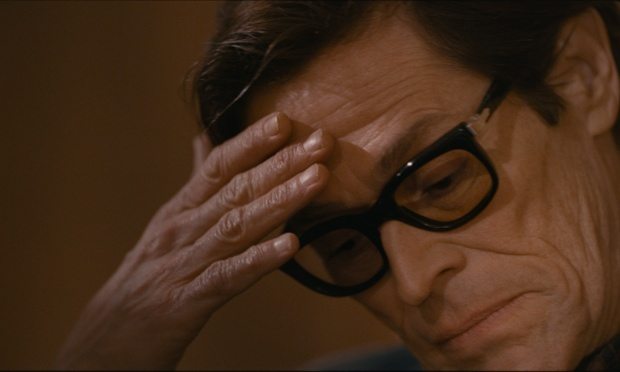
 Never one to shy away from some controversy, Abel Ferrara made a film about the last twenty four hours in the life of Italian renaissance man Pier Paolo Pasolini. His murder in 1975 remains one of the most mysterious in all of the twentieth century, with the case acquiring lurid new life after his confessed killer retracted from his original statement in 2005, stating that he had been forced to take the blame by a third party. While Ferrara’s Pasolini has little interest in making its own conjectures about the murder and its authors, it chooses to frame its plot during the last day in Pasolini’s life, precisely to celebrate his endless creativity and his importance in modern culture.
Never one to shy away from some controversy, Abel Ferrara made a film about the last twenty four hours in the life of Italian renaissance man Pier Paolo Pasolini. His murder in 1975 remains one of the most mysterious in all of the twentieth century, with the case acquiring lurid new life after his confessed killer retracted from his original statement in 2005, stating that he had been forced to take the blame by a third party. While Ferrara’s Pasolini has little interest in making its own conjectures about the murder and its authors, it chooses to frame its plot during the last day in Pasolini’s life, precisely to celebrate his endless creativity and his importance in modern culture.
Played by Willem Dafoe, who inhabits his skin without trying very hard to be his exact copy, we first meet Pier Paolo as he is being interviewed and asked if he fears for his personal safety, after being the object of aggression in the streets. We detect that as any reasonable man would, he doesn’t like it, but his reaction is more daring, than terrified. Perhaps there is too much going in his mind, for him to worry with petty things such as mortality. During the course of this day we see him spend time with his mother (Susanna Asti), listen to music with his friends (Maria de Medeiros is particularly delightful as Laura Betti) and work on what would be his next film, a Biblical satire called Messiah. There are no kismets, no signs of what’s to come and audience members unaware of what the film is about will most likely be surprised by the Mrs. Dalloway-ness of it all.
Yet it’s precisely in this vacuum that Ferrara pays his grandest tribute to Pasolini; the filmmaker still seems to be in shock, in denial perhaps, that this man he obviously admired so much has been gone for the past four decades. Ferrara shoots scenes of what Messiah would have looked like (in a strike of pure genius he casts Riccardo Scamarcio in the lead role who will undoubtedly remind Pasolini connoisseurs of Ninetto Davoli) and then we understand that despite its biopic-like conventions, the film is a very personal essay about an artist grieving over how much he misses someone. As it all leads towards a scene of quick, brutal violence in a beach in Ostia, Ferrara makes a Pasolini-like observation by reminding us that life should be an unabashed celebration, for it’s all over too soon, too unexpectedly.